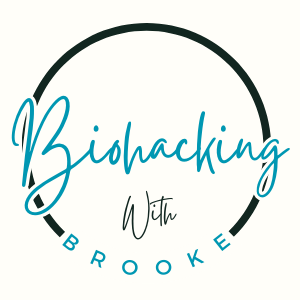Mitochondria are the powerhouses of our cells, quietly working behind the scenes to keep us buzzing with energy. But did you know their health also plays a big role in longevity? If you want to boost your energy and unlock the secrets to a longer, healthier life, you’ve come to the right place.
In this post, we’ll explore how to optimize mitochondrial function. You’ll learn simple strategies to energize your cells and improve how you feel each day. Say goodbye to fatigue and hello to vibrant living!
Get ready to embrace new habits that can transform your health and keep those powerhouses running strong. Energizing your cells is just a few steps away!
What Are Mitochondria?
Mitochondria are often referred to as the powerhouses of our cells, and for good reason! These tiny organelles play a crucial role in generating energy to power everything our bodies do. But there’s more to mitochondria than just energy production. Let’s explore their functions and how keeping them healthy can enhance your well-being and longevity.
The Powerhouse of the Cell
Mitochondria produce ATP (adenosine triphosphate), the energy currency of the cell. Think of ATP as the money your cells use to buy energy for their activities. Mitochondria convert nutrients from the food you eat into this energy-rich molecule. This process is known as cellular respiration, and it involves two main stages: glycolysis and oxidative phosphorylation.
During glycolysis, glucose is broken down in the cytoplasm, producing a small amount of ATP. The real magic happens in the mitochondria during oxidative phosphorylation. Here, oxygen plays a vital role. As a byproduct of this process, carbon dioxide and water are formed. It’s fascinating how such small structures can power vital cellular functions!
If you want to dive deeper into the specifics, you might find this article on Mitochondria and their function interesting.
Mitochondria and Cell Health
Healthy mitochondria are essential for overall cell function. They do more than just produce energy; they also help regulate metabolism, support cell signaling, and control the life and death of cells. When mitochondria function optimally, your body can better respond to stress, repair itself, and maintain health.
On the flip side, damaged or dysfunctional mitochondria can lead to various health issues, including chronic fatigue, muscle weakness, and even conditions like diabetes or neurodegenerative diseases. It’s clear: taking care of these little powerhouses can make a big difference in how we feel.
Strategies to boost mitochondrial health include regular exercise, a balanced diet rich in antioxidants, ensuring adequate sleep, and reducing stress. For a deeper look into the relationship between mitochondria and health, check out this piece on Mitochondria in Health and Diseases.
By nurturing these essential organelles, you can enhance your cellular energy and vitality, paving the way for a longer, healthier life.
Signs of Mitochondrial Dysfunction
Mitochondrial dysfunction can manifest in various ways. Recognizing these signs early can help you take action to improve your cellular health. Here’s a closer look at some key indicators of mitochondrial issues:
Fatigue and Low Energy
Low mitochondrial function often leads to persistent fatigue and low energy. Your mitochondria are responsible for converting food into ATP, the energy currency your cells use. When these powerhouses falter, your body simply can’t produce enough energy.
Imagine trying to drive a car on empty. It may sputter and struggle, just like you might feel when your mitochondria are underperforming. Chronic fatigue can increase your overall exhaustion, making everyday tasks feel monumental. If you find yourself needing more rest than usual or feeling drained despite adequate sleep, this could be a sign of mitochondrial dysfunction. For more insights, check out this article on the relationship between chronic fatigue and mitochondrial health.
Cognitive Decline
Your brain relies heavily on mitochondrial health for optimal function. Mitochondria provide the energy needed for mental tasks, memory, and focus. When these tiny organelles struggle, so does your cognitive performance.
Think of your brain as a high-performance car; without well-functioning parts, it won’t run smoothly. Signs of cognitive decline from mitochondrial dysfunction might include forgetfulness, difficulty concentrating, or even mood swings. Research now suggests a clear association between cognitive impairment and mitochondrial issues, which you can explore in detail in this study on mitochondrial dysfunction as a driver of cognitive decline.
Muscle Weakness
Muscle cells are heavily dependent on mitochondria for strength and endurance. When mitochondrial function decreases, you may notice unexplained muscle weakness or an inability to sustain physical activity. It’s like trying to lift weights without having the necessary strength.
Many people with mitochondrial dysfunction experience exercise intolerance, which makes even simple activities feel challenging. If you find that your muscles tire quickly or your strength diminishes over time, it’s worth looking into mitochondrial health. Resources like this overview on mitochondrial myopathies provide further details on how these issues manifest physically.
Awareness of these signs is the first step toward optimization of your mitochondrial health. Taking proactive measures to support these powerhouses can lead to improved energy, cognitive function, and overall muscle performance.
How to Boost Mitochondrial Health
Optimizing mitochondrial health is essential for energy production and overall wellness. Here are some key strategies to energize your cellular powerhouses.
Nutrition for Mitochondria
What you eat can significantly impact your mitochondria. Fueling your body with the right foods can enhance mitochondrial function. Here are some nutrient-packed options to consider:
- Healthy Fats: Include sources like avocados, olives, nuts, and seeds. These fats support mitochondrial membranes.
- Antioxidant-Rich Fruits: Berries, oranges, and apples help combat oxidative stress, protecting your mitochondria.
- Leafy Greens: Vegetables like spinach and kale are packed with vitamins and minerals that support energy production.
- Whole Grains: Quinoa and brown rice provide complex carbs for sustained energy release.
- Lean Proteins: Chicken, fish, and legumes supply essential amino acids necessary for mitochondrial repair.
For in-depth details on foods that boost mitochondrial health, check out this article on 8 Ways to support your mitochondria.
Exercise and Mitochondrial Function
Exercise is like a magic elixir for your mitochondria. Engaging in physical activity encourages your body to produce more mitochondria, enhancing your energy levels over time. Different forms of exercise have unique benefits:
- Aerobic Exercise: Activities like running or cycling increase your heart rate. This has been shown to improve mitochondrial function and increase ATP production.
- Strength Training: Lifting weights not only strengthens your muscles but also stimulates mitochondrial growth.
- Interval Training: Short bursts of high-intensity workouts can ramp up mitochondrial biogenesis, leading to even more efficient energy usage.
Want to learn more? Check out this insightful study on Exercise and mitochondrial health.
The Role of Sleep
Getting quality sleep isn’t just for feeling rested; it plays a pivotal role in maintaining mitochondrial health. During sleep:
- Your body repairs and regenerates cells, including mitochondria.
- Sleep regulates the release of hormones that are vital for energy production.
- Poor sleep quality has been linked to mitochondrial dysfunction, resulting in decreased energy levels.
If you struggle with sleep, consider creating a bedtime routine and avoiding screens before bed. For more details on how sleep affects mitochondria, read this article on How does sleep affect mitochondria?.
Supplements That Help
Several supplements have shown promise in boosting mitochondrial health. Consider adding the following to your routine:
- CoQ10: This powerful antioxidant supports energy production in mitochondria.
- Magnesium: Essential for ATP production, magnesium can enhance energy levels and cellular function.
- B Vitamins: These vitamins play a crucial role in energy metabolism and supporting mitochondrial health.
- Urolithin A: Recent studies suggest it can enhance muscle mitochondrial function, especially in aging populations.
For further information on supplements, check out this guide on Supplements for Mitochondrial Health & Support.
By focusing on nutrition, exercise, sleep, and targeted supplements, you can energize your mitochondria and improve your overall vitality.
Mitochondria and Aging
Mitochondria are more than just energy factories; they play a crucial role in the aging process. As we get older, our mitochondria decline in number and efficiency. This decline can shape how we age, impacting our overall health and vitality.
The Aging Process: Mitochondrial Decline and Its Effects
Aging is often linked to a decrease in mitochondrial function. As these organelles become less efficient, they struggle to produce the energy our cells need. This can lead to various health issues.
Here’s how mitochondrial decline affects aging:
- Increased Fatigue: With less energy available, daily tasks can feel exhausting.
- Cognitive Challenges: Mitochondrial dysfunction can impair brain function, leading to memory loss and confusion.
- Muscle Weakness: Reduced energy in muscle cells can result in decreased strength and endurance.
Research shows that mitochondrial aging contributes significantly to these challenges. Studies reveal that dysfunctional mitochondria produce more free radicals, leading to oxidative stress. This stress accelerates aging and is linked to conditions like neurodegenerative diseases. For a deeper understanding, you can explore this article on mitochondrial aging and dysfunction.
Longevity Through Mitochondrial Support: Promising Research
Recent studies spotlight the potential for improving lifespan through mitochondrial health. Researchers are finding ways to support these organelles, impacting how we age.
Consider these key insights:
- Mitochondrial Biogenesis: Enhancing the production of new mitochondria can boost energy levels and health. Certain lifestyle choices, like regular exercise, can stimulate this process.
- Antioxidant Support: Antioxidants can help combat oxidative stress and protect mitochondria. Foods rich in antioxidants, such as berries and dark chocolate, are excellent for mitochondrial health.
- Caloric Restriction: Some research suggests that reducing caloric intake may improve mitochondrial function and extend lifespan. It’s thought that this activates metabolic pathways that protect against age-related decline.
Exciting advancements in mitochondrial research show that targeting these organelles could unlock longevity secrets. For a fascinating read on recent findings, check out this study on the mitochondrial basis of aging.
Supporting mitochondrial health isn’t just about boosting energy; it’s about enhancing overall well-being as we age. By focusing on these powerhouses, we can take significant steps toward a healthier, longer life.
Biohacking Mitochondrial Health
Mitochondrial health is essential for energy production and longevity. Here are some effective strategies you can implement to boost your mitochondria and enhance overall well-being.
Cold Exposure and Mitochondria
Cold therapy isn’t just for the brave; it can give your mitochondria a significant boost! When you expose yourself to cold, whether through ice baths or cold showers, your body kicks into gear. Cold exposure increases mitochondrial biogenesis, meaning your body can produce more of these essential powerhouses.
Research suggests that cold can improve energy metabolism and efficiency in existing mitochondria. This means not only are new mitochondria getting made, but the ones you already have become supercharged. You can read more on the benefits of cold exposure and how it enhances mitochondrial function.
Try gradually introducing cold exposure into your routine. Start with a 30-second cold shower and work your way up. You might be surprised at how invigorating it feels!
Intermittent Fasting Benefits
Intermittent fasting does wonders for your mitochondria. By cycling between periods of eating and fasting, you allow your body to focus on repairing and rejuvenating itself. Fasting triggers a process called autophagy, where damaged cells break down and recycle, improving overall mitochondrial function.
Studies show that fasting promotes mitochondrial splitting, which can lead to healthier and more resilient mitochondria. It forces your cells to adapt and become more efficient at energy production. To dive deeper into the science, check out this article on UCLA’s findings.
Want to give it a try? Consider incorporating a 16:8 fasting schedule into your week, where you eat during an 8-hour window and fast for the remaining 16 hours. You may notice increased energy and focus.
Mindfulness and Stress Reduction
Stress can wreak havoc on your mitochondrial health. Elevated stress levels lead to increased oxidative stress, damaging your mitochondria. Thankfully, you can counteract this with mindfulness practices. Meditation, deep breathing, and yoga can lower stress and improve mitochondrial function.
Research suggests that mindfulness can enhance mental clarity and emotional balance, positively impacting how your mitochondria perform. Stress reduction techniques improve mitochondrial energy production, helping them thrive. You can explore how psychological stress affects mitochondria in this systematic review.
Take time for yourself. Even a few minutes each day to breathe deeply or meditate can make a big difference. Implementing stress reduction techniques could lead to less fatigue and more energy to tackle your day.
By trying out these methods, you can significantly improve your mitochondrial health, fueling your journey to better energy and longevity!
Conclusion
Optimizing mitochondrial health is key to energizing your cells and enhancing your longevity. Simple lifestyle changes, like eating right, exercising, and getting enough sleep, can make a huge difference. By focusing on your mitochondria, you not only boost your energy but also lay the groundwork for a healthier, longer life.
Take action today! Incorporate antioxidant-rich foods and regular physical activity to support your cellular powerhouses.
How will you prioritize your mitochondrial health moving forward? Remember, every small step counts toward vibrant energy and overall well-being.
Brooke is a rock-climbing 🧗♀️, tennis-playing 🎾, biohacking 🧬 bookworm 📚 on a mission to unlock the secrets of health, longevity, and living life to the fullest 🌟. When she’s not scaling cliffs, hitting the courts, or testing out the latest hacks, you’ll find her nose in a book or adventuring with her four-legged best friend 🐕 by her side. With a knack for turning science into simple, actionable tips, Brooke’s writing is your guide to hacking your biology and living your best, most vibrant life!


